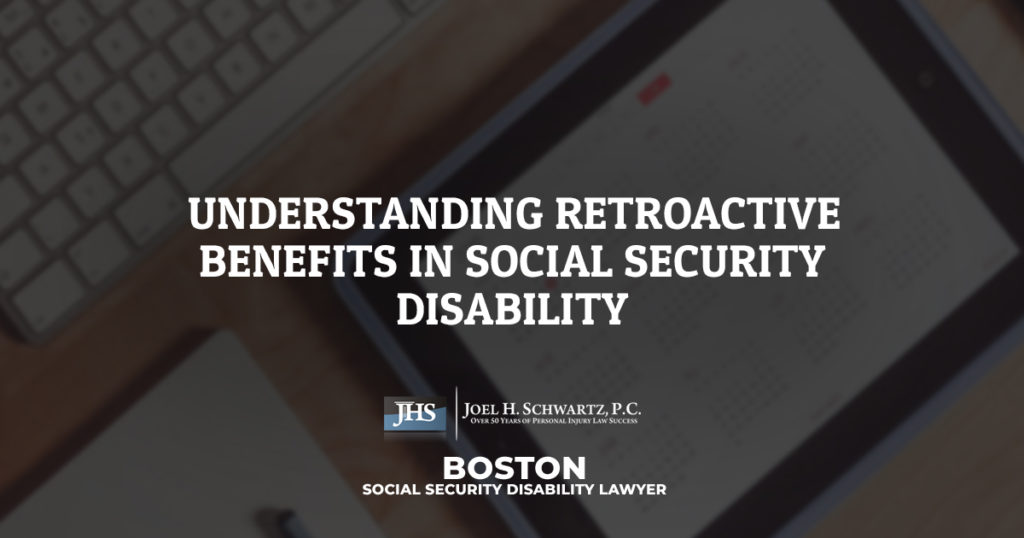Receiving an SSDI check that is lower than what it should be (or higher, in some cases) is a rare event considering that the Social Security Administration delivers monthly benefits to over 70 million people, and only 0.2 percent of those payments turn out to be incorrect. However, that still adds up to 2.6 billion dollars in incorrect payments. So what should you do if you find yourself on the receiving end of an incorrect SSDI check? Our SSDI attorneys help many clients collecting SSDI benefits in Boston and provide some answers to common questions about SSDI payment errors and what can be done about them.
Why Do Incorrect SSDI Payments Happen?
Considering the sky-high volume of benefits and payments processed every year by the SSA, it is easy to understand how mistakes may happen. The most common reasons for payment mistakes are (1) the SSA made a clerical or computational error, (2) the SSA failed to obtain or take action on information regarding a recipient’s eligibility or correct benefit amount, and (3) the beneficiary provided incorrect information or neglected to provide data about a major life event or change in income that may affect benefits. If you have reported an underpayment or overpayment and your case is still pending with the SSA, the amount you are receiving will remain unchanged until a decision is made regarding your revision.
What Should I Do if I Have Been Overpaid?
According to the SSA, an overpayment happens when a beneficiary is paid more than he or she should have received. If that is the case, the beneficiary is expected to repay the amount received as an overpayment. The SSA will typically send an overpayment notice and provide options for a beneficiary to make repayments or to appeal the decision.
If the beneficiary is in agreement, the SSA will deduct the overpayment amount from his or her SSI benefits. The full amount may be withheld, or the beneficiary may request a smaller deduction if he or she can demonstrate that making repayments by having the full amount of their benefits taken will cause them hardship. Beneficiaries can also choose to repay the full amount in one lump sum or negotiate a repayment plan. Either way, ignoring the overpayment notice is a serious mistake, because the SSA has the power to garnish wages and/or income tax refunds from beneficiaries who do not comply. However, the SSA will likely work with you to set up a monthly payment plan that fits your budget.
If you don’t agree with the claim that you have been overpaid and don’t believe you should be paying any money back to the SSA, you may file an appeal within 60 days of receiving the notice of overpayment in the mail. You will need to submit form SSA-632 and demonstrate that you believe the overpayment wasn’t your fault and that complying with the request for repayment would be unfair and/or cause hardship.
What Should I Do if I Have Been Underpaid?
Underpayments often occur due to errors in a beneficiary’s earning history. If you believe you have received an SSDI check that was less than expected, your first step is to contact SSA by phone at 1-800-772-1213 or visit a Social Security office in your area. Be ready to provide documents such as your W-2s, tax returns, and pay stubs.
You can also create an online account for free at www.ssa.gov and access your social security statement, verify your earnings and make sure they are recorded correctly. If you spot an error, you can then report it to SSA. They will investigate your case and if you have been underpaid, the SSA may offer compensation for underpayments by issuing a lump sum amount or adding the difference to your monthly payments.
How Long Do I Have to Request a Revision to My SSDI Checks?
It is recommended that you request a revision to your SSDI checks as soon as you notice an error. In some cases, such as overpayments, noticing the mistake early on may prevent a bigger headache down the road (when you may be required to pay back the extra money). But if your check is less than you should be receiving, the sooner you report it, the sooner you will be able to get paid the amount you are entitled to.
If you received an overpayment notice from the SSA, you have 60 days from the date you received the letter to file an appeal, with very few exceptions. For underpayments, there is no set deadline – report it as soon as you notice the mistake. Keep in mind that if you find inaccuracies in your Social Security earnings record, you have three years, three months, and 15 days to request a correction. The best thing to do is to act sooner rather than later.









